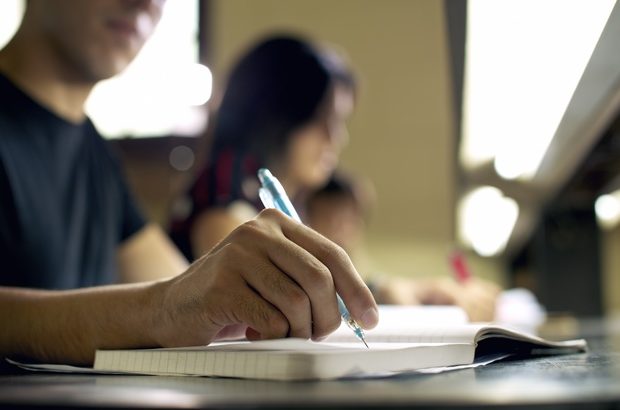Oceanía/Nueva Zelanda/Julio de 2016/ /Fuente: RNZ
RESUMEN: Las instituciones terciarias están tratando de inscribir a miles de estudiantes de la India aunque Inmigración de Nueva Zelanda no creen que sea realmente la intención de estudiar aquí. Las cifras proporcionadas en virtud de la Ley de información oficial muestra 51 instituciones, incluyendo la mitad de las escuelas politécnicas del país, que tienen tasas de disminución de visado para los estudiantes de la India de más del 30 por ciento.
En la mayoría de las instituciones más de la mitad de las solicitudes están siendo rechazada y en uno la tasa de disminución es del 86 por ciento.
Ellos muestran que la inmigración Nueva Zelanda 3864 rechazó solicitudes de visado para las instituciones, y aprobado 3176 durante ese tiempo.
Inmigración de Nueva Zelanda dijo al programa Insight de RNZ que la mayoría de las aplicaciones se redujo en los primeros cuatro meses de este año porque no creía que el solicitante realmente venía a estudiar, o porque no creía que tenía suficiente dinero para mantenerse a sí mismos.
Autor: John Gerritsen
Tertiary institutions are trying to enrol thousands of Indian students that Immigration New Zealand does not believe are really intending to study here.
Figures provided under the Official Information Act show 51 institutions, including half of the country’s polytechnics, have visa decline rates for Indian students of more than 30 percent.
At most of the institutions more than half of applications are being turned down and at one the decline rate is 86 percent.
The figures cover the six months from the start of December 2015 to the end of May 2016 and are only for institutions with at least 10 visa applications from Indian students. They show that Immigration New Zealand turned down 3864 visa applications for the institutions, and approved 3176 during that time.
Immigration New Zealand told RNZ’s Insight programme that most of the declined applications in the first four months of this year were because it did not believe the applicant was really coming to study, or because it did not believe they had enough money to support themselves.
In 2014, Immigration New Zealand warned New Zealand Qualifications Authority (NZQA) that high refusal rates could indicate problems with tertiary institutions.
«For the purpose of prioritisation INZ believes that a provider who has an average decline rate of 30 percent or above warrants urgent attention. Such a high decline rate would give INZ serious cause for concern that the provider does not have adequate systems and processes in place to control the quality of the offers of place being issued, or that business practices are flawed.»
Immigration said it had increased its audits of providers with high decline rates and was now assessing information obtained from the 10 establishments it had visited so far.
It also had other tools, such as extra verification of visas applications for providers with high decline rates.
NZQA said it was assessing what it should do about the providers, but noted it recently gained new powers for dealing with rogue institutions.
Many institutions trying to enrol students from India are having their applications declined. Photo: 123rf
Auckland International Education Group spokesperson Paul Chalmers said the vast majority of the declined applications were not cases of fraud, but were simply not up to Immigration’s specifications.
Immigration was sometimes turning down bona fide students, he said.
«Whenever we have had an appeal from an agent we have taken it to INZ and won it.»
The international education spokesperson for the private sector body, Independent Tertiary Education, Richard Goodall, said Immigration was being tougher on applications from India, but visa decline rates above 50 percent were questionable.
«You’re getting more declined than accepted, something’s wrong along the way.»
His institution relied on agents to provide information about students, but it checked that information and often interviewed the students to make sure they should be enrolled, he said.
«I think there are, and there probably always will be, some who are more inclined to take the marginal ones than we are. It’s always painful for private enterprise to turn away a customer.»
The chief executive of Newton College of Business and Technology in Auckland, Ashish Trivedi, told Insight that all institutions enrolling from India were having a lot of students turned down.
His organisation was one of 21 that Immigration New Zealand said had decline rates above 60 percent.
«Some of it is a real necessary crack down on fraudulent activities and we support that. We have had rejections to student visa applications based on fraudulent activities. Working in Indian market you are going to be affected by that,» Mr Trivedi said.
Other institutions contacted for comment for this story did not respond, including Imperial College of New Zealand which had the highest rate of refused applications at 86 percent.
Minister of Tertiary Education Steven Joyce said institutions must sign up to a Code of Practice in order to enrol foreign students and recent changes to that document would help NZQA weed out any bad operators.
«What this does is make sure that NZQA, with supporting information from Immigration New Zealand, and as the code administrator will be able to say, ‘no we’re not happy with the practices here and if we don’t see a very significant change immediately you’re placing your whole future at risk’.»
Income from foreign students was growing steadily toward the government’s target of $5 billion a year by 2025, Mr Joyce said.
Foto: Immigration New Zealand is turning down as many as 86 percent of the study visa applications coming from India for some tertiary institutions. Photo: 123RF
Fuente: http://www.radionz.co.nz/news/national/308191/thousands-of-indian-students-denied-visas







 Users Today : 130
Users Today : 130 Total Users : 35459725
Total Users : 35459725 Views Today : 218
Views Today : 218 Total views : 3418190
Total views : 3418190